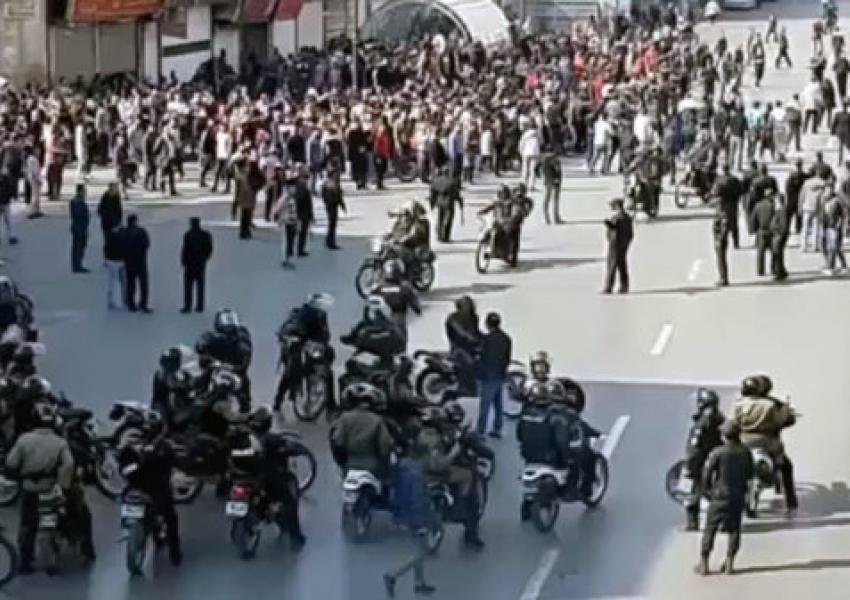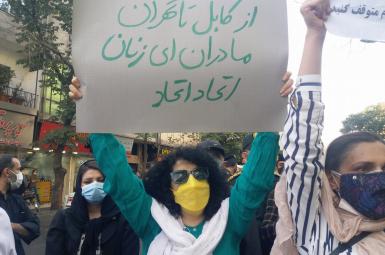
Amnesty Blasts Iran For Major Violations Following November Protests
Iran used the most inhumane methods to deal with people who took part in nationwide protests last November, Amnesty International has said in a damning report published on September 2.
The renowned international rights watchdog says the brutality used was not just carried out by security forces but had the assistance of Judicial bodies. “Instead of investigating allegations of enforced disappearance, torture and other ill-treatment and other crimes against detainees, Iranian prosecutors became complicit in the campaign of repression by bringing national security charges against hundreds of people solely for exercising their rights to freedom of expression,” Amnesty says after collecting information from dozens of victims, witnesses and families of those affected.
In mid-November after the government suddenly tripled gasoline crisis, ordinary people poured into the streets in dozens of cities to protest the decision amid worsening economic conditions.
The protests soon turned into unrest against the Islamic Republic, as protesters chanted slogans against the country’s rulers, demanding complete change.
Security forces began attacking protesters on the second day of the unrest as Internet services were stopped to prevent news from leaking out. According to various estimates hundreds of people were killed by security forces. Reuters put the toll at 1,500. At least 7,000 were arrested, detained and many later tried behind closed doors without due process of law.
“This litany of crimes and violations, committed with total impunity, has been accompanied by a wave of forced televised ‘confessions’ in state propaganda videos and grotesque statements from top officials who have praised intelligence and security forces as heroes for their role in the brutal crackdown,” the Amnesty report says.
Referring to the violent conduct of security forces on the streets, the rights watchdog says that the brutality continued after the protests were suppressed, against those who were arrested. “Much less visible has been the catalogue of cruelty meted out to detainees and their families by Iranian officials away from the public eye,” said Diana Eltahawy, Amnesty International’s Deputy Regional Director for the Middle East and North Africa.
Amnesty has catalogued several concrete cases of those tortured in prison by brutal floggings, electric shocks, stress positions, mock executions, waterboarding, sexual violence, forced administration of chemical substances, and deprivation of medical care.
Referring to known cases of people convicted by unfair trials, the international watchdog says, “the real number of individuals prosecuted and sentenced in connection with the November 2019 protests is far higher, given the large number of arrests carried out and the patterns of prosecution and sentencing in the country in cases of arbitrary arrests and detention involving intelligence and security bodies.”








